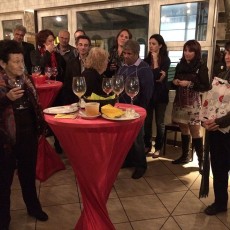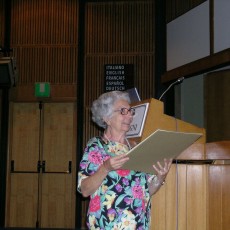Lauren Resnick
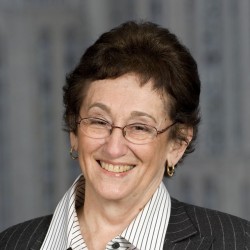
Lauren Resnick is Distinguished University Professor of Learning Sciences and Education Policy as well as Psychology and Cognitive Science at the University of Pittsburgh. She is also the Founder and Director of the Institute for Learning and currently Senior Scientist at the Learning Research and Development Center at the University of Pittsburgh. Having discovered her passion for history and literature while pursuing her bachelor’s degree at Radcliffe College, Resnick continued her studies earning both a master’s degree in teaching and her doctorate from Harvard University before teaching abroad at the American School of Paris. In addition to working as a research associate for the Harvard University Committee on Programmed Instruction and Laboratory for Research in Instruction and then as a lecturer in the Office of Research and Evaluation in the Division of Teacher Education at City University of New York, Resnick also served as a Senior Scientist and Staff Consultant at Basic Systems, Inc. before accepting her first faculty position at the University of Pittsburgh. As a faculty member, educational researcher, and scholar, Resnick has dedicated more than 50 years to conducting pioneering research on learning and development, scientific understanding in children, and socially shared cognition. As past president of the American Educational Research Association (AERA, 1986-1987) and a member of both the National Academy of Education (NAE) and International Academy of Education (IAE), she has served as an invited lecturer, visiting scholar, and keynote speaker at universities around the world. In recognition of her distinguished contributions to research, she has received numerous awards and honors including as a Fellow in the American Psychological Association (APA) and American Association for the Advancement of Science (AAAS); Lifetime National Associate of the National Academies of Sciences (Engineering and Medicine); Award for Distinguished Contributions to Research in Education (AERA, 1990); Edward L. Thorndike Award for Distinguished Psychological Contributions to Education (APA, 1998); Oeuvre Award for Outstanding Contributions to the Science of Learning and Instruction (European Association for Research on Learning and Instruction, 1999); Award for Distinguished Contributions of Applications of Psychology to Education and Training (APA, 2007); Wallace Foundation Distinguished Lecture Award (AERA, 2009); and the FABBS Award (Fabbs Foundation, 2011). As of 2016, Resnick published more than 200 scholarly works that have been cited more than 25,000 times. Her recent authored and edited books include: Socializing Intelligence Through Academic Talk and Dialogue (2015, with C. Asterhan and S. L. Clarke); Reading and Writing with Understanding (2009, with S. Hampton); Reading and Writing Grade by Grade (2009, with S. Hampton); and Speaking and Listening for Preschool through Third Grade (2009, with C. E. Snow).
For more information, visit Lauren Resnick’s Website. To learn more about Lauren Resnick from her colleagues and friends, visit her Reflections. To view photographs from Lauren Resnick’s personal collection, visit her Photo Gallery.
Curriculum Vitae Suggested readingsVisit the video below to watch a short overview of the interview with Lauren Resnick. Otherwise, see all five of the full interviews with Lauren Resnick below.
Video Interviews with Lauren Resnick:
Born and raised in New York City, Dr. Lauren Resnick describes the experiences of her grandparents as immigrants to the United States in the late 19th century and her father’s work as a representative of Western farming families during her youth. She recalls the profound impact of her early experiences traveling the country to various farming communities on her views of others, noting that diverse Americans have been able to “make deep friendships across the boundaries.” Encouraged by her parents who highly valued post-secondary education to apply to Ivy League schools, although many had not previously admitted Jewish students, Resnick received numerous acceptances before choosing to attend Radcliffe College. In this clip, learn more from Dr. Resnick about her experiences studying at Radcliffe and later at Harvard University with Drs. B. F. Skinner and Jerome Bruner. Learn also about her early work as an educational researcher and scholar.
Having served as a distinguished faculty member at the University of Pittsburgh for more than 50 years, Dr. Lauren Resnick describes her ongoing research on learning inside and outside of schools. Recalling several influential studies in which researchers examined how learning occurs when multiple individuals accomplish complex tasks such as navigating a ship or landing an airplane, she reflects that “what we were doing in school had isolated school from the realities of how highly intellectual activities [were done].” Noting that “the way we do things in school isn’t the only way to learn,” Resnick describes the need to recognize that learning out of school is rarely done privately and is often ritualized. She adds that “kids know things that teachers don’t know they know.” Watch this clip to hear more from Dr. Resnick about how to prepare teachers to reflect on their own professional practice in ways that help students learn.
Reflecting on her work in Accountable Talk, Dr. Lauren Resnick explains the importance of the listener’s sense-making as part of the process in determining “what it means to be right.” Based on this premise, she describes current research findings that suggest robots asking the right questions could potentially facilitate student learning in post-secondary courses. Additional studies need to be conducted in this area. Reaffirming the value of teacher reflection, however, she notes the need to empower teachers “to learn what to look for in their own behavior and in their students” when using Accountable Talk in the classroom. Resnick adds that teacher training is needed in which Accountable Talk is considered an instructional as well as a classroom management strategy. In this clip, learn more from Dr. Resnick about the potential for new research in current contexts of accountability policy and the need to have conversations with practitioners about what is really important.
Widely recognized for her dedication to working with practitioners and their students, Dr. Lauren Resnick reflects on her past research on effort-orientated systems, noting that “anybody can learn anything if they work at it.” Although she cautions that “effort” is often simplified and equated to teaching students to have “grit,” Resnick explains that this research fundamentally contradicts notions of fixed intelligence. Adding that tests of intelligence have traditionally been used to track students into certain classes in schools, she summarizes the importance of recognizing students’ ability to learn, noting that “we don’t really care what your native ability is…if you are willing to work and we can get you some good help and good teaching, you can do anything you want.” Watch this clip to hear more from Dr. Resnick about the historical background of intelligence testing and how teachers can help all students learn.
Explaining that she remains uninspired by “trying to do things the way they have always been done,” Dr. Lauren Resnick notes that “people are potentially much smarter than they become as a result of the schooling we now offer.” Reflecting on her work in Accountable Talk as a strategy for helping students learn, she cautions, however, against the use of curriculum that isolates its social and cognitive aspects. Recalling the profound impact of early experiences working with scholars such as B. F. Skinner, Jerome Bruner, Bob Glaser, and Alan Newell on her own research, Resnick encourages graduate students and early career scholars to find good mentors who will support their work. In this clip, learn more from Dr. Resnick about her passion for mathematics and enjoy stories about her experience using the Internet more than a half century ago.
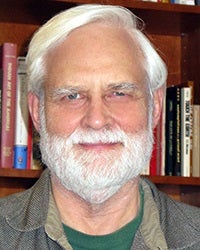
Dr. James Greeno
Characterizing his long-time colleague and friend, Dr. Lauren Resnick, as a “humane, caring, and deeply intellectual person,” Dr. James Greeno notes that the “field of learning science is different, and better, because of [her] contributions to its advancement.” Having worked with Lauren both as a colleague at the Learning Research and Development Center (LRDC) at the University of Pittsburgh and as a co-author, James describes her most significant personal and professional achievements as her “commitment to, and understanding of, the advancement of science and her founding of the leading journal for research in learning and cognition,” adding that these have “contributed greatly to the advancement of the scientific knowledge base of education.” He also notes that “her founding and administrative leadership of the Institute for Learning and her interaction with educational policy makers have contributed greatly to society’s process of considering both the need for and the possibilities of change in educational practice.”
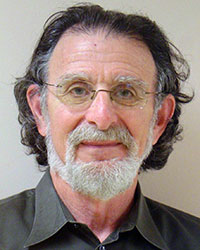
Dr. David Klahr
Having first met his long-time colleague and friend, Dr. Lauren Resnick, more than 50 years ago, Dr. David Klahr recalls time spent together with their families, noting that they are members of the same Congregation. Adding that his family “has been her guest (at some times) and her tenant (at others) in the ‘Round House’ that she and [her husband] Dan designed out in the middle of Pennsylvania,” David explains that he has watched her children and grandchildren grow up. Recounting one of many enjoyable moments over the years, David describes a Carnegie Cognition Symposia he organized at a resort in Vail, Colorado in June of 1974. Explaining that he had hoped to take advantage of the locale and late spring timing, David had arranged for the symposia to be held at a lodge located about 10,000 feet above sea level. Anticipating a very full schedule, David recalls that the participants had all gathered to hear presentations on the first day “when suddenly a late spring snow squall swept down the mountain, and snow rapidly began to accumulate as the speaker droned on (with overhead transparencies, of course).” After 10 minutes of watching the storm through the windows, David recalls that “Lauren stood up, looked at the speaker, looked at the audience, looked out the window at the already one inch of snow that had accumulated, said ‘let’s go,’ and headed out the door.” Remembering everyone’s quick response to Lauren’s call, David describes the massive snowball fight that ensued, adding that “perhaps it was between constructivists and anti-constructivists, now that [he] looks back on it…but the terms weren’t all that clear, back then.” Adding that they “all had a great time,” David notes that “Jim Greeno could throw a better snowball than Herb Simon.” Characterizing his long-time friend as “smart, inventive, focused, and tough,” David cautions that one shouldn’t “be fooled by [her] charm and impish smile.” Also citing Lauren’s co-directorship of the Learning Research and Development Center (LRDC) at the University of Pittsburgh as one of her most significant accomplishments, David notes that “in addition to her substantial scientific skills, Lauren is a master administrator, proselytizer, and advocate for her scientific and administrative agenda.”
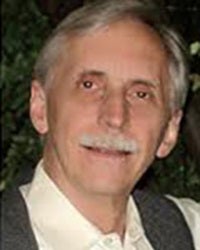
Dr. Charles Perfetti
Recalling his experiences working with his long-time colleague and friend, Dr. Lauren Resnick, at the Learning Research and Development Center (LRDC) at the University of Pittsburgh, Dr. Charles Perfetti notes that she served first as co-director and later director before he ultimately assumed that position, adding that they “have taken turns being each other’s boss, although not equal turns.” Explaining that their “relationship includes a symbiosis between Lauren’s fondness for personal oral narrative and [his] willingness to be a listener,” Charles recalls that he “got to hear her stories about the national education scene, battles on behalf of educational reform, her views on teaching and teachers, race in society and education, theoretical disputes in cognitive science, the professoriate, and much more, plus the people involved in these things.” Recounting a story he heard about Lauren that “reflects her style of leadership: wryly, insightful, scientifically grounded, and ultimately optimistic,” Charles notes that as “the founding Director of the Institute for Learning, part of LRDC, [Lauren] developed a cadre of school personnel from around the country, especially expert teachers who were interested in joining leadership efforts in instructional improvement.” During a particularly lengthy meeting of this group, Charles explains that some teachers had just finished reviewing data on an intervention when “Lauren rose from her chair, struck a reflective pose and said, ‘It was a great idea; it just didn’t work!'” Noting that Lauren’s “scholarly contributions span research and integrative papers on the development of mathematical knowledge, literacy, socially shared cognition, thinking-centered learning and instruction, theoretical analyses of schooling and learning, and the practice of educational improvement and school reform,” Charles cites “her article in Science (1983) that brought the active learner perspective that was ascending in cognitive science and education to the broader scientific community [and] her Educational Researcher article, based on her 1987 AERA [American Educational Research Association] Presidential Address” as a few of her most significant publications. He explains that the latter is a “forceful analysis of how learning in the everyday world and learning in school are systematically different in four fundamental ways, and how those differences lead to schooling that is less effective for broader societal, economic, and civic goals,” adding that the “real force of the paper, however, is the more optimistic conclusion that successful school programs share properties of out of school learning and that creating schooling on these models may bring formal education closer to its conceived value.” Charles shares his favorite quote from the article: “If we value reason and reflection in social, political, or personal life, we must maintain a place devoted to learning how to engage in this extremely important process. School, at its best, is such a place.” Characterizing his long-time colleague and friend as “indefatigable, always in motion, always thinking, [and] usually talking,” Charles adds that Lauren is “an intellectual but also a story teller; she is practical, but loves a good theory.” Capturing her essence and nature using her last name, Charles explains that “Lauren is Reformer, Educator, Scholar, Noetic, Improver, Collaborator, Knower. RESNICK.”
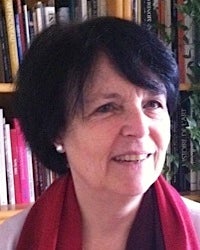
Dr. Anne-Nelly Perret-Clermont
Recalling her first meeting with Dr. Lauren Resnick, Dr. Anne-Nelly Perret-Clermont explains that they “immediately felt as if [they] had known each other for a long time-a feeling of friendship that deepened each time [they] met professional and personally.” Adding that “in many ways, Lauren is like a dear older sister to [her], even if, in fact, [they] weren’t raised in the same ‘family’ or academia, and haven’t even met that often,” Anne-Nelly notes that whenever they “have an opportunity to talk on the phone [they] always have the feeling of pursuing a conversation that was inadvertently stopped only a few days before.” Noting that Lauren agreed to stay in her home when they first met in order to “take advantage of all the spare moments [her] young children and heavy teaching load would leave [them],” Anne-Nelly explains that she “felt very fortunate that Lauren accepted this unusual way of doing things!” She recalls long evenings spent “looking at data and sharing the pleasure of discovering together children’s creative reasoning in (supposedly standard) arithmetic tasks and the pleasure of the inner joy of experiencing how listening to young kids made [them] feel.” She adds that they “were accessing a world in which even the younger ones, even those who seemed to have ‘difficulties’ as novices in arithmetic, were so intelligent!” Anne-Nelly adds that “from then on [they] have shared a common enthusiasm for meeting minds ‘at work’ in the classroom or out of school.” Despite also “sharing the pain of understanding how bureaucratic modes of interactions in school could induce students and teachers to believe they were not ‘intelligent’ enough to risk themselves into thinking,” Anne-Nelly adds that they also “shared the commitment to demonstrat[ing] that this is not true!” She reflects that Lauren “with an incredible energy and a lot of work, has been struggling for this cause in the United States and in many places on all continents” which has “inspired [Anne-Nelly] in more local involvements in science and education policy and in psychological research.” Anne-Nelly explains that she has been “involved in promoting European cooperation in psychology of education, [and] it has always been a pleasure for [her] to meet Lauren as an American partner truly interested in European scientific research and ready to share her experience and contacts.” Recounting time spent together at a conference in Italy, Anne-Nelly also recalls a humorous story about Lauren’s particularly disappointing hotel accommodations that included noisy neighbors, a dripping shower, a damaged ceiling that left plaster dust falling on the bed, and no air conditioning. Although Anne-Nelly learned about Lauren’s uncomfortable night sleep at breakfast the next morning and had already found her a nicer hotel before the end of the day, she did not have an opportunity to tell her! By the time they met again, Anne-Nelly “found a total enthusiastic Lauren [who] had spent the morning walking around the blocks of houses of this poor district, entering small stores and bakeries, discussing with the man selling newspapers at the corner of the street, [and] meeting a craftsman repairing violins in a very small shop and an artist making leather bags.” She adds that Lauren “had been wandering around the few stalls of the small local market, and now, in the late afternoon, when fresher air was bringing people back out on the streets, it seemed that everybody around knew her!” She notes that “everybody was smiling at [Lauren], [and] trying to exchange a few words (successfully because she understands some Italian), and she was made to feel part of the place.” Lauren “felt so great that she couldn’t even imagine that [they] would want her to change hotels! How could warm still air, leaks and dust matter in front of so much joyful and friendly zest for life?” Reflecting on her long-time colleague and friend’s most significant professional accomplishments, Anne-Nelly explains that they are numerous and inter-connected in that Lauren “has always understood learning as ‘nested in society’ and she has equally understood…that society vitally needs to ‘learn’ from experience and from others to become more intelligent (i.e., more creative, more knowledgeable, more social, more argumentatively minded, more dialogical) to solve its recurrent and present problems.” She adds that “this has led Lauren to work simultaneously at different levels (the learner, the teacher, the school community, the local, national, and international authorities), building projects nationally (with individual teachers, but also with districts or policy makers and scientific societies) and internationally.” Anne-Nelly explains that “on all these levels, Lauren is not a ‘teacher-who-knows’ (in spite of all she knows) but an interlocutor in search of learning for herself and society” which is reflected in “her brilliant students, the enthusiasm she creates in the research community, the projects that she contributes to, her numerous books and publications, [and] the scientific and policy committees of all sorts that she inspires.” She adds that Lauren has made and is still making “major contributions to understanding ‘minds at work’ and what structures and enriches these minds, and how they communicate and share experience and knowledge…promot[ing] a kind of learning that neglects neither contents nor social relations: a sustainable learning that has long term effects.” Anne-Nelly captures Lauren’s essence and nature as “‘intelligence at work,’ listening and caring!” Learn more about Lauren Resnick from her friend Anne-Nelly-Perret-Clermont.
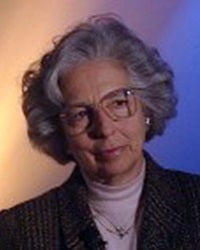
Dr. Clotilde Pontecorvo
Characterizing her long-time colleague, Dr. Lauren Resnick, as “her best friend in the United States,” Dr. Clotilde Pontecorvo explains that they have “a long history of friendship and scientific collaboration.” Recalling their work together as co-authors, Clotilde also shares stories of time spent traveling with Lauren around the world. Recounting one of her first memories, Clotilde explains that Lauren and her husband Daniel had requested her assistance in booking a hotel in San Quirico d’Orcia, Italy “with the explicit request to have ‘a room with a view’ (an implicit quotation of the movie by James Ivory from the short story of Edward Morgan Forster).”Although she thought at the time “that the request was not a typical one for a tourist,” Clotilde adds that the “Resnick pair was not at all usual: they were highly educated and refined.” Joining Lauren and Daniel on another trip in Yucatan, Mexico, Clotilde and her husband Maurizio stayed at a site of the Club Mediterranée. In an effort to avoid being identified as Yankees, Clotilde notes that Lauren proposed they speak French to one another. In fact, no one spent the trip speaking their native language. Clotilde also remembers their stay at a conference in Fribourg, Switzerland, explaining that Lauren proposed they hike to the peaks of the Jungfrau Mountain (a difference in altitude of 2,000 meters). Although they reached their destination in a few hours, Clotilde adds that their legs ached to the point that Lauren used two ski poles for walking throughout the rest of the conference! Recalling one of her own visits to the United States, Clotilde fondly remembers working with Lauren to finish the introduction for their book, Discourse Tools and Reasoning. Explaining that she felt compelled to actually come to Pittsburgh and stay at Lauren’s home for a week in order to prompt her to finish the book, Clotilde notes that “was the only way to constrain her to stay home and write what was needed.” She adds that the book was published just in time. Characterizing Lauren as “the international leading person in educational psychology,” Clotilde finds Lauren “very brave to depart from her original training and research in psychology of mathematical learning and teaching to discover the relevant role of language and discourse in school classrooms, until developing the practice of ‘accountable talk’ as a teacher’s means to develop [a] student’s reasoning and learning.” Characterizing her long-time friend and colleague as having “an open mind and [being] highly educated in many fields,” Clotilde explains that Lauren is “also a person who tries to get, together with work, opportunities for amusement, listening to and practicing good music, and physical exercise.”
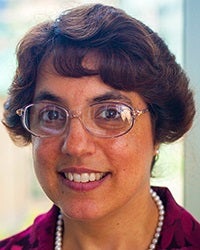
Dr. Carolyn Rose
Explaining that she and long-time colleague and friend, Dr. Lauren Resnick, served as co-leaders of the Social and Communicative Factors in Learning initiative within the Pittsburgh Science of Learning Center, Dr. Carolyn Rose recalls that “Lauren always described [their] working relationship as an arranged marriage that turned out to be a match made in heaven,” adding that their “collaboration was very influential” in her own career. Recounting a fond memory of time spent working together, Carolyn describes a series of events Lauren planned around the visit of a mutual colleague from Hong Kong. Recalling both a small, informal lunchtime talk and another more extensive, formal event, Carolyn explains that “the lunch [they] were served at the small informal one ended up being a huge quantity of quite fancy food served with champagne,” adding that she “always thought maybe [Lauren] got the two events swapped on her calendar.” Reflecting on her colleague’s most significant accomplishments, Carolyn notes that she always associates “Lauren with Accountable Talk, which is a classroom discussion facilitation technique, [and that] that concept formed the foundation of [their] joint work.” She adds that “Lauren always believes in almost magical qualities associated with Accountable Talk [and that] her talks related to this always had a sort of evangelistic flair.” Carolyn also praises Lauren’s “singular dedication to bringing Accountable Talk to urban classrooms,” explaining that this is “the kind of dogged determination that was required to make something positive happen in a challenging environment.” Carolyn notes that she has “always admired how dedicated Lauren [is] to making education better.” Characterizing Lauren’s voice as “always seem[ing] to bring wisdom from afar, gathered through her extensive travels,” Carolyn adds that “hearing her wisdom always stirred in [her] a desire to grow up and be like her.”
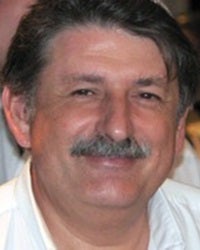
Dr. Baruch Schwarz
As Dr. Lauren Resnick’s post-doctoral student from 1989 through 2002, Dr. Baruch Schwarz explains that this “very long period…was necessary for turning [him] from a mathematician and a mathematics teacher, to a scientist in the Learning Sciences,” adding that since leaving the Learning Research and Development Center (LRDC) at the University of Pittsburgh, he has “maintained a vivid relationship with Lauren, as a colleague and as a friend.” Baruch explains that he “had been reluctant to come to [his] post-doctoral studies because [his] wife was at the seventh month of pregnancy;” however, Lauren “encouraged [him] to come and told [him] she would help.” Recounting her generosity, Baruch notes that Lauren helped him “settle in Pittsburgh with his wife and 3.9 (!) children” which included helping him apply for health insurance and even giving him a sofa when he needed furniture. Explaining that “Lauren’s generosity was also intellectual,” Baruch notes that she introduced him to Bob Glaser, Alan Lesgold, and Gaea Leinhardt “from whom [he] learned a lot.” She also sent him “to many conferences to represent the project on which [he] worked with her as a post-doc[toral student].” Describing two of her most significant accomplishments, Baruch explains that Lauren is “one of the founders of the large community of scientists in the Learning Sciences.” Having begun her career as B. F. Skinner’s PhD student, Baruch adds that Lauren continued her career as student of Jerome Bruner and then Alan Newell and explains that “this extraordinary shift from behaviorism to the cognitive revolution gave [her] a very broad perspective about learning and instruction.” He notes that she “was one of the promoters of a new shift in the Learning Sciences, the adoption of a socio-cultural perspective towards situated learning,” adding that “no one except from [her] and Jim Greeno have passed through all these revolutions in the domain of learning.” Baruch notes that her extraordinary background prepared her to “transform the domain of the Learning Sciences” through her directorship of the LRDC by recruiting “first-class scientists from very different backgrounds, and the interactions between these scientists turned Learning in to an interdisciplinary domain called now the Learning Sciences.” Baruch adds that she “also initiated main educational reforms in the United States…, and [was] the first to recognize that these reforms that had the ambition to boost education and to decrease inequity did not reach her expectations.” In addition, he explains that “the promotion of [her work in] Accountable Talk as a vast program to improve the quality of talk in school has become a model of inspiration for many practitioners around the world.” Characterizing Lauren “first of all [as] a leader, Baruch notes that she “puts this leadership in the service of her high societal ideals: scientific knowledge should be disseminated among many,” and she “sees her mission to apply what she searched in the service of social welfare.” Baruch ultimately captures Lauren’s essence and nature “in a nutshell, [as] leadership, generosity, and commitment to social welfare.”
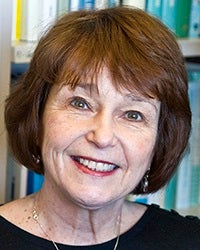
Dr. Mary Kay Stein
Recalling when she first met Dr. Lauren Resnick in the Learning Research and Development Center (LRDC) at the University of Pittsburgh, Dr. Mary Kay Stein explains that she “has ‘known’ Lauren for much longer than Lauren has ‘known’ [her]” as they “did not start working together until…collaborating in the study of Community School District #2 in New York City [but they] have been colleagues ever since.” Noting that she has “always teased Lauren that she lived a ‘charmed life’,” Mary Kay recounts one such experience on the same flight as Lauren back to Pittsburgh, explaining that “as [she] walked past [Lauren’s] seat (in first class) to [hers] (in the back of the plane).” Along the way, Mary Kay adds that Lauren showed her the novel she was reading which later “drifted down the center aisle toward the back of the plane…, low and behold, stopping exactly at [her] seat.” Mary Kay explains that “naturally, [she] scooped it up [and] walked to the front of the plane [to] give it back” to Lauren, adding that “she hadn’t even known she’d lost it, and [yet] it was returned-evidence of charmed life!” Describing Lauren’s most significant personal and professional accomplishments, Mary Kay explains that she “is internationally famous AND managed to raise two wonderful sons and is exceedingly close to her grandchildren.” Capturing the essence and nature of her long-time colleague and friend, Mary Kay explains in conclusion that Lauren is “focused, wicked smart, passionate about knowledge, [and] ahead-of-her-time.”



